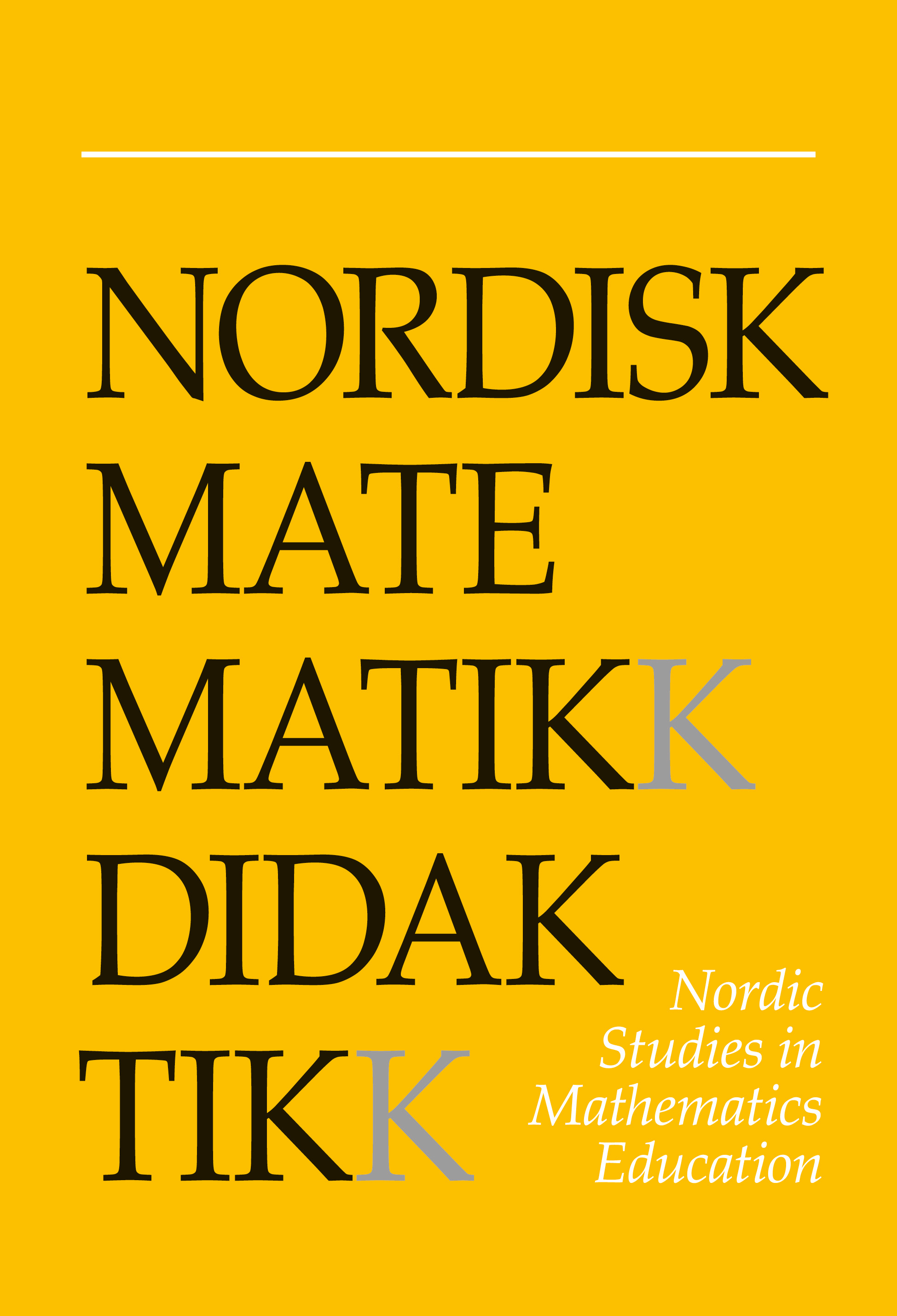From beliefs to patterns of participation – shifting the research perspective on teachers
DOI:
https://doi.org/10.7146/nomad.v16i1-2.148291Abstract
Belief research was introduced to mathematics education in the early 1980s. It challenged the primarily cognitive and mathematical agenda of the time by investigating the character and significance of mental meta-constructs called beliefs. Particular attention has ever since been paid to teachers’ beliefs and their role in instruction.
Belief research has been troubled by conceptual and methodological problems since its early beginnings, and most of these are still unresolved. This indicates that it may be time to adopt a different perspective, if we are to understand the role of the teacher for the practices of the mathematics classroom.
Elsewhere we have discussed the problems of belief research at some length and suggested an alternative that we call patterns-of-participation research (e.g. Skott, 2009, 2010). In the present article we briefly recapitulate some of the arguments underlying this suggestion, but our main interest is to use the patterns-of-participation approach for empirical purposes. Consequently the article consists of two main sections. First we summarise some of the problems of belief research and present the contours of our alternative, patterns-of-participation research. Second, we in a much longer section present and analyse data on the case of a teacher, Susanne, whom we follow prior to and after her graduation from college. The overall intention is to suggest a change of research perspective from beliefs to patterns of participation.
References
Gee, J. P. (2000-2001). Identity as an analytic lens for research in education. Review of Research in Education, 25, 99-125. https://doi.org/10.2307/1167322
Green, T. (1971). The activities of teaching. New York: McGraw-Hill.
Hoyles, C. (1992). Mathematics teachers and mathematics teaching: a meta-case study. For the learning of mathematics, 12 (3), 32-44.
Lave, J. (1988). Cognition in practice. Cambridge: Cambridge University Press. https://doi.org/10.1017/CBO9780511609268
Lerman, S. (2001). A review of research perspectives on mathematics teacher education. In F.-L. Lin & T. J. Cooney (Eds.), Making sense of mathematics teacher education (pp. 33-52). Dordrecht: Kluwer. https://doi.org/10.1007/978-94-010-0828-0_2
Lester, F. K. (2002). Implications for research on students' beliefs for classroom practice. In G. C. Leder, E. Pehkonen & G. Törner (Eds.), Beliefs: a hidden variable in mathematics education? (pp. 345-353). Dordrecht: Kluwer. https://doi.org/10.1007/0-306-47958-3_20
Op't Eynde, P., Corte, E. de, & Verschaffel, L. (2002). Framing students' mathematics related beliefs. A quest for conceptual clarity and a comprehensive categorization. In G. C. Leder, E. Pehkonen & G. Törner (Eds.), Beliefs: a hidden variable in mathematics education? (pp. 12-38). Dordrecht: Kluwer. https://doi.org/10.1007/0-306-47958-3_2
Philipp, R. A. (2007). Mathematics teachers' beliefs and affect. In F. K. Lester (Ed.), Second handbook of research on mathematics teaching and learning (Vol. 1, pp. 257-315). Charlotte: NCTM & Information Age Publishing.
Schoenfeld, A. (1998, 26.05.2010). Toward a theory of teaching-in-context. Retreived May 25, 2011 from http://www-gse.berkeley.edu/faculty/AHSchoenfeld/Schoenfeld_TeachingInContext.pdf
Sfard, A. (2008). Thinking as communicating. Human development, the growth of discourses, and mathematizing. Cambridge: Cambridge University Press. https://doi.org/10.1017/CBO9780511499944
Skott, J. (2004). The forced autonomy of mathematics teachers. Educational Studies in Mathematics, 55 (1-3), 227-257. https://doi.org/10.1023/B:EDUC.0000017670.35680.88
Skott, J. (2009). Contextualising the notion of belief enactment. Journal of Mathematics Teacher Education, 12 (1), 27-46. https://doi.org/10.1007/s10857-008-9093-9
Skott, J. (2010, July). Shifting the direction of belief research: from beliefs to patterns of participation. Paper presented at PME 34, Belo Horizonte, Brazil.
Wilson, M., & Cooney, T. J. (2002). Mathematics teacher change and development. The role of beliefs. In G. C. Leder, E. Pehkonen & G. Törner (Eds.), Beliefs: a hidden variable in mathematics education? (pp. 127-148). Dordrecht: Kluwer. https://doi.org/10.1007/0-306-47958-3_8
Downloads
Published
How to Cite
Issue
Section
License

This work is licensed under a Creative Commons Attribution-NonCommercial-ShareAlike 4.0 International License.



